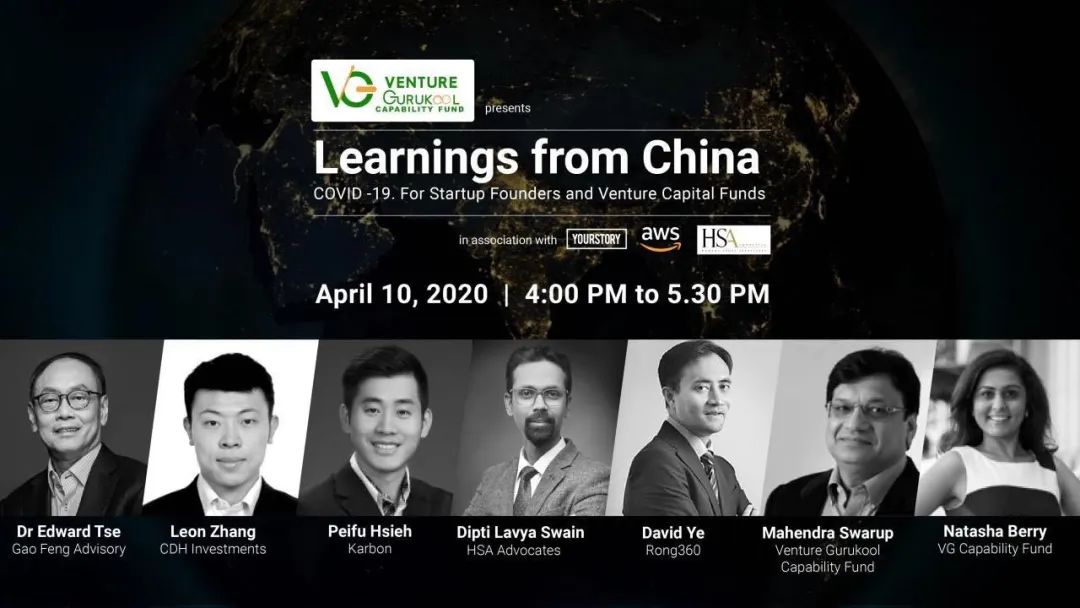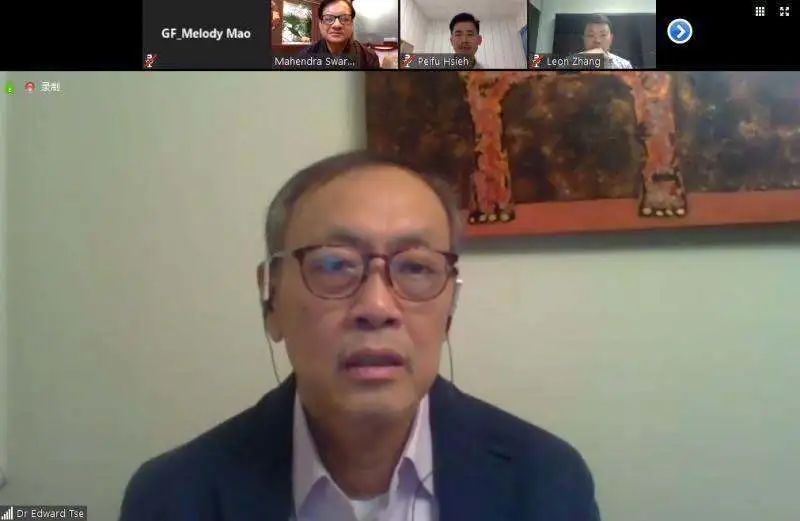Summary | Learnings from China

On April 10, Gao Feng Advisory's CEO Dr. Edward Tse joined the webinar hosted by Venture Gurukool and AWS on Learnings from China: COVID-19.
During the webinar, Dr. Tse shared the lessons from how China fought the pandemic. Here is a brief summary:
COVID-19 has been an unfortunate crisis that few could have predicted. China had to react quickly as it rapidly spread in some areas of the country. Unfortunately, it continued to spread to other countries as well, including India.
It would be worthwhile for many, including leading companies, start-up companies and venture capitalists to understand China’s experience in fighting the virus. What can be learnt from the way China fought the outbreak? For India, what are the areas that China had done well in, and what are the mistakes that it needs to avoid?
China has done a highly effective job deploying resources from many parts of the society. Although the economy has been hit pretty hard by the crisis, there are also silver linings, such as the fact that we will see accelerated growth in some sectors.
Questions
&
Answers

Q1
In India, many large venture capital funds have come together to help start-up companies in collaborating with the government. From the China perspective, Dr. Tse, do you think that China has almost bounced back as the crisis is peaking in other developing economies? Was China using this chance to hunt around for bargains in these places? What do you think as an independent consultant?
Dr. Edward Tse: Thank you for the question. First of all, I will separate government behaviour from business behaviour. The Chinese government has actually been rather collaborative and outward-looking.
The Chinese government, since realizing that the pandemic within China had come under control and had started ramping up in other parts of the world, has been quite proactive internationally. It has been helping by sending medical supplies and sharing experiences on how to fight the pandemic. Of course, some people would consider these as geo-political moves, which are not in the scope of our discussion tonight.
But from a business standpoint, I see both Chinese companies “going out” and foreign companies looking to invest in China. On one hand, more Chinese investors are looking for potential plays outside of China, including in India and beyond. Obviously, when you are at the bottom of the market, there could be bargains to be found. This applies in particular to well-funded investors as well as the big Chinese corporates who are interested in extending beyond China’s border. On the other hand, the opposite is also happening. Many multinational companies who came to and invested in China are also encountering short-term difficulties in operations. However, the better-funded global companies have asked us to help them look at potential acquisition opportunities within China. For a long time, valuation of companies has been pretty high from a foreign company’s standpoint. But now, at least from what I know after talking to quite a number of smaller companies, some of them are encountering a lot of short-term challenges. So the owners are quite open to discussions with large foreign companies in terms of potential deals. So, we see both sides happening, which is quite interesting.
Q2
Once we come out of COVID-19, all kinds of digital businesses will start growing. What do you think of the offline businesses, such as the big, multi-million-dollar brands from the US? What will happen to them?
Dr. Edward Tse: I think many of the traditional brands will have to find a way to adapt themselves to the online world. Before the pandemic happened, quite a number of leading brands, particularly in consumer essentials, have been moving to become more digital. I think this trend will accelerate and create more distinguishable brands in an online world.
The change could be quite profound, but at the same time, I also want to caution a little bit that human nature sometimes remains quite basic, despite the changes we anticipate. Humanity can very easily go back to its original inertia, and some of these phenomena will probably fade away while some will remain, largely on the dimensions that another panelist mentioned earlier.
So, let’s see how the world works. I think one of the biggest takeaways for me is how the world is really impacted and how humanity needs to reflect upon who we are. Before the crisis, all the focus was very much on the US-China trade talks. It was all about economic development, GDP and so on. Almost nobody talked about an issue like a potential disease outbreak. It’s like nobody cared about, or was even aware of it. Even global issues such as climate change, pollution and AI ethics didn’t really find a place on the agenda of the major powers on a united basis, particularly from the US standpoint. This pandemic is now forcing a lot of people and political leaders around the world to reflect upon what they are doing. The virus doesn’t recognize borders. It’s the common enemy to the whole of humanity. How do we collaborate and how do we work closely together to address this kind of situation if it happens again? We know for sure that something like this will happen again, maybe not a virus pandemic, but it could be something else of a similar magnitude. We have to face global issues together and are going to need to work together in a much more collaborative rather than a parochial manner.

